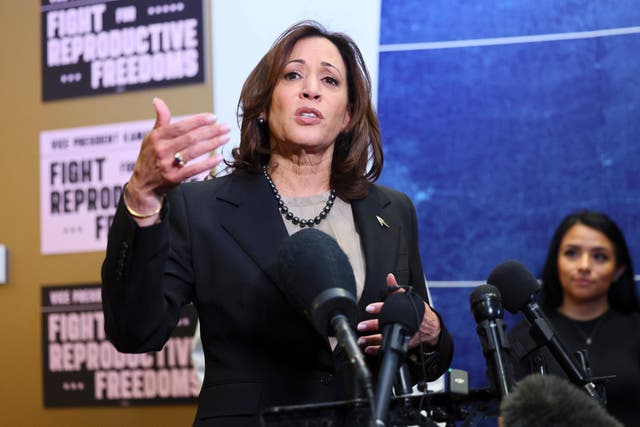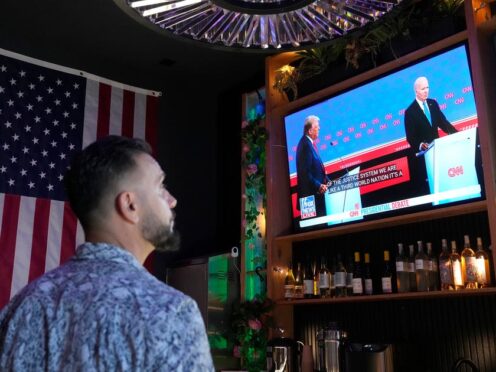US President Joe Biden’s halting debate performance has led some in his own party to question whether he should be replaced on the ballot before November.
There is no evidence Mr Biden is willing to end his campaign, and it would be nearly impossible for the Democrats to replace him unless he chooses to step aside.
Here are the reasons why:
– Delegates are bound to Mr Biden
Every state has already held its presidential primary. Democratic rules mandate that the delegates Mr Biden won remain bound to support him at the party’s upcoming national convention unless he tells them he is leaving the race.
Mr Biden indicated that he had no plans to do that, telling supporters in Atlanta shortly after he left the debate stage: “Let’s keep going.”
Mr Biden’s campaign spokesperson Lauren Hitt was even clearer, saying on Friday: “Of course he’s not dropping out.”
The conventions and their rules are controlled by the political parties. The Democratic National Committee could convene before the convention opens on August 19 and change how things will work, but that is not likely as long as Mr Biden wants to continue seeking re-election.
The current rules read: “Delegates elected to the national convention pledged to a presidential candidate shall in all good conscience reflect the sentiments of those who elected them.”
– Might Kamala Harris replace Biden?
Vice President Kamala Harris is Mr Biden’s running mate, but that does not mean she can swap in for him at the top of the ticket by default.

Mr Biden also cannot decree that she replace him should he suddenly decide to leave the race.
The Democratic National Convention is being held in Chicago, but the party has announced that it will hold a virtual roll call to formally nominate Mr Biden before in-person proceedings begin. The exact date for the roll call has not yet been set.
If Mr Biden opts to abandon his re-election campaign, Ms Harris would be likely to join other top Democratic candidates looking to replace him. But this would probably create a scenario where she and others ended up lobbying individual state delegations at the convention for their support.
This has not happened for Democrats since 1960, when John F Kennedy and Lyndon B Johnson jockeyed for votes during that year’s Democratic convention in Los Angeles.
– What about other potential Democratic candidates?
In addition to the Vice President, others who had endorsed Mr Biden in 2024 while harbouring their own presidential aspirations for future cycles include California governor Gavin Newsom, Michigan governor Gretchen Whitmer, Pennsylvania governor Josh Shapiro, Illinois governor JB Pritzker and California representative Ro Khanna.
Still others who Mr Biden bested during the party’s 2020 presidential primary could also try again, including senators Bernie Sanders, Elizabeth Warren and Amy Klobuchar, as well as Transportation Secretary Pete Buttigieg.
If Mr Biden were to abruptly leave the race, conservative groups have suggested they will file lawsuits around the country, potentially questioning the legality of the Democratic candidate’s name on the ballot.
But Elaine Kamarck, a senior fellow in governance studies at the Brookings Institution in Washington, who wrote a book about the presidential nominating process and is also a member of the Democratic National Committee’s rulemaking arm, said that courts had consistently stayed out of political primaries as long as parties running them were not doing anything that would contradict other constitutional rights, such as voter suppression based on race.
“This is very clear constitutionally, that this is in the party’s purview,” Ms Kamarck said in an interview before the debate.
“The business of nominating someone to represent a political party is the business of the political party.”
